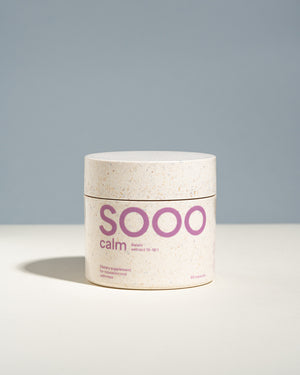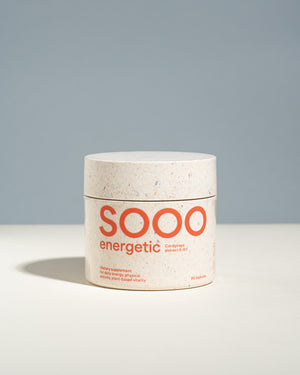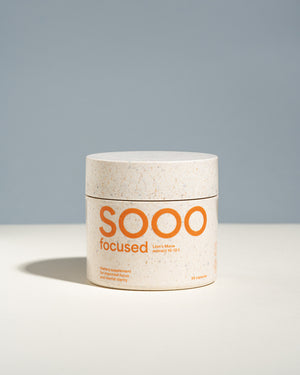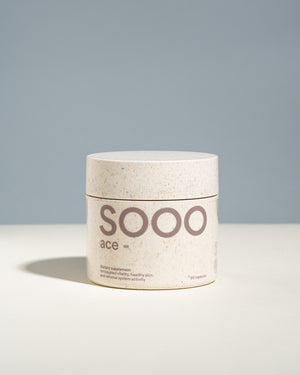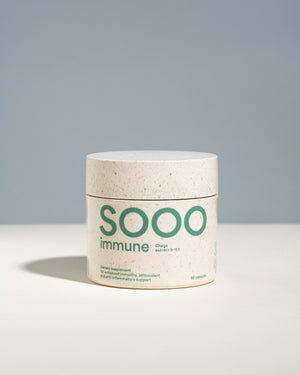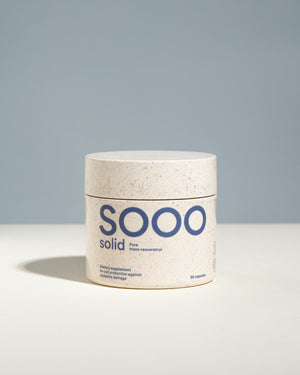Trans-resveratrol - guardian of youth
In the realm of natural health supplements, few compounds have garnered as much attention and intrigue as resveratrol, affectionately known as RV. This polyphenol, found in various plant sources including red grapes and berries, has been heralded for its potential to combat a wide array of chronic diseases. Let's delve into the fascinating world of trans-resveratrol and uncover its comprehensive defence against chronic ailments.
Neurological Diseases and Cognitive Performance
Resveratrol emerges as a promising ally in the battle against neurological diseases, particularly Alzheimer's. Studies administering around 500 mg of RV daily to Alzheimer's patients have shown encouraging results, including reduced levels of beta-amyloid in the brain, a key hallmark of the disease [1]. Additionally, RV exhibits potential in enhancing cognitive function, offering hope for those grappling with cognitive decline [2].
Diabetes
For individuals grappling with diabetes, resveratrol holds significant promise. By enhancing insulin sensitivity and reducing postprandial glucose spikes, RV may help individuals better manage their blood sugar levels [3]. However, its interactions with diabetes medications necessitate further exploration to optimize its therapeutic benefits.
Cancer
Resveratrol's anti-cancer properties are nothing short of remarkable. By modulating the insulin-like growth factor (IGF) signaling pathway, RV acts as a potent chemopreventive agent, reducing the risk of cancer development. Optimal doses of RV have been shown to significantly decrease IGF levels, underscoring its potential as a formidable weapon in the fight against cancer [4].
Obesity
In the battle against obesity, resveratrol emerges as a metabolic superhero. By mimicking the effects of calorie restriction [5], RV promotes fat metabolism, enhances energy production, and improves insulin sensitivity, offering hope for effective weight management strategies.
Cardiovascular Diseases
Resveratrol's cardiovascular benefits are equally impressive. Studies have demonstrated its ability to enhance vascular function, improve blood vessel flexibility [6], and offer protection against various cardiovascular conditions. However, its effects on heart health may vary depending on factors such as dosage and individual characteristics.
Other Benefits
Resveratrol's therapeutic reach extends beyond the realms of diabetes, cancer, and cardiovascular health. It shows promise in mitigating metabolic syndrome [7], inflammatory diseases [8], kidney diseases [9], and other conditions associated with oxidative stress and inflammation.
Key Component(s):
Resveratrol (trans‐3,5,4′‐trihydroxystilbene)
Recommended Usage
For optimal benefits, consume 500 mg of resveratrol every morning.
Clinical Trials
The wealth of clinical studies conducted on resveratrol underscores its potential as a therapeutic agent across various health conditions. With 209 clinical trials as of December 2023, resveratrol continues to captivate researchers and health enthusiasts alike.
Caution
While resveratrol has been deemed safe at doses up to 5 g/day, higher doses may result in adverse effects such as nausea and gastrointestinal discomfort. Understanding resveratrol's bioavailability and pharmacokinetics is crucial for optimizing its therapeutic efficacy and minimizing potential side effects.
Harness the Power of Resveratrol
Unlock the potential of resveratrol and embark on a journey toward comprehensive health and vitality. Embrace nature's gift and harness the power of resveratrol to safeguard your well-being against the ravages of chronic diseases.
[1] Turner, R. S., Thomas, R. G., Craft, S., Van Dyck, C. H., Mintzer, J., Reynolds, B. A., Brewer, J. B., Rissman, R. A., Raman, R., Aisen, P. S., For the Alzheimer’s Disease Cooperative Study, Alzheimer’s Disease Cooperative Study, Mintzer, J., Reynolds, B. A., Karlawish, J., Galasko, D., Heidebrink, J., Aggarwal, N., Graff-Radford, N., … Alexopoulis, G. (2015). A randomized, double-blind, placebo-controlled trial of resveratrol for Alzheimer disease. Neurology, 85(16), 1383–1391. https://doi.org/10.1212/WNL.0000000000002035


